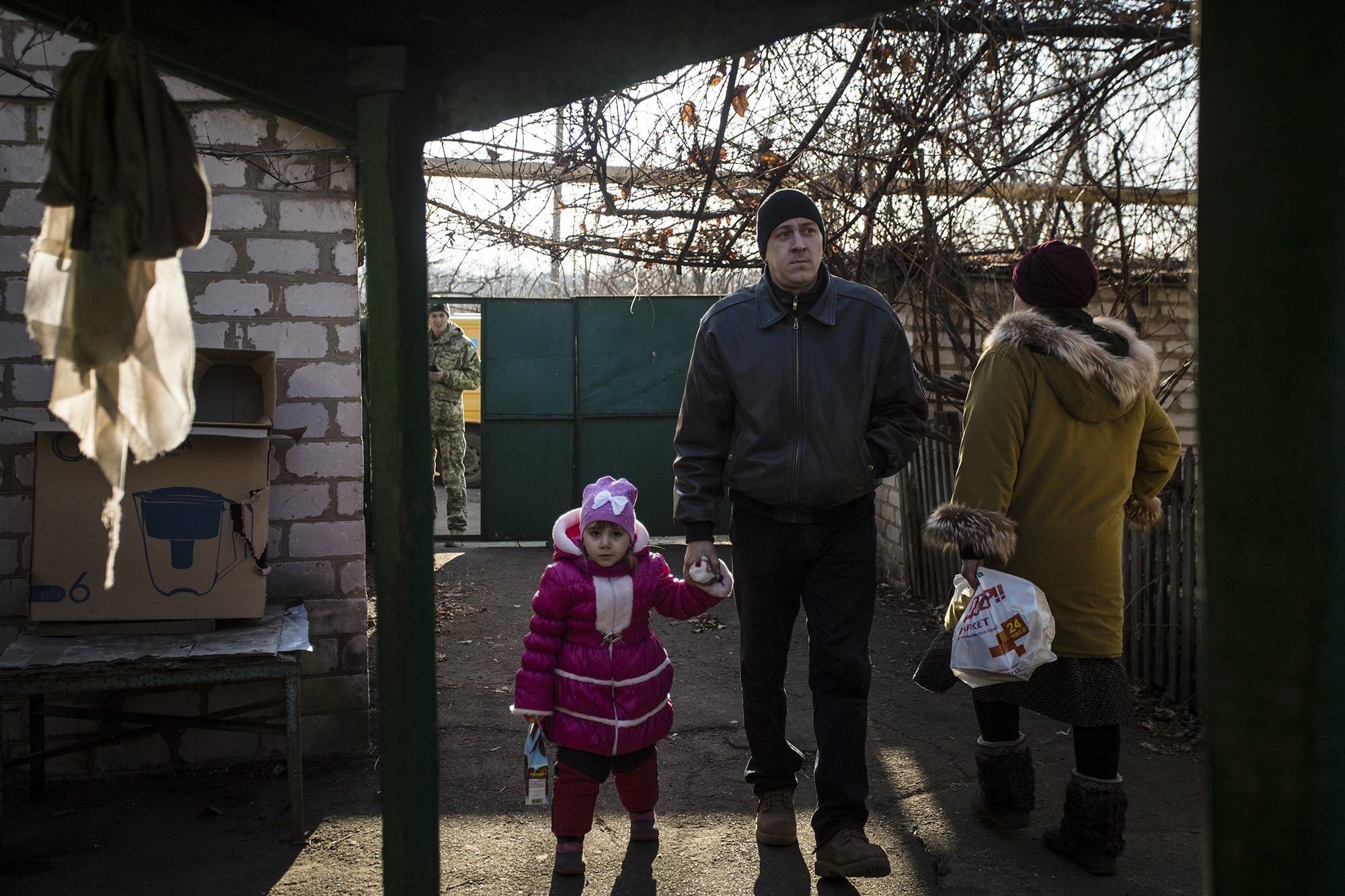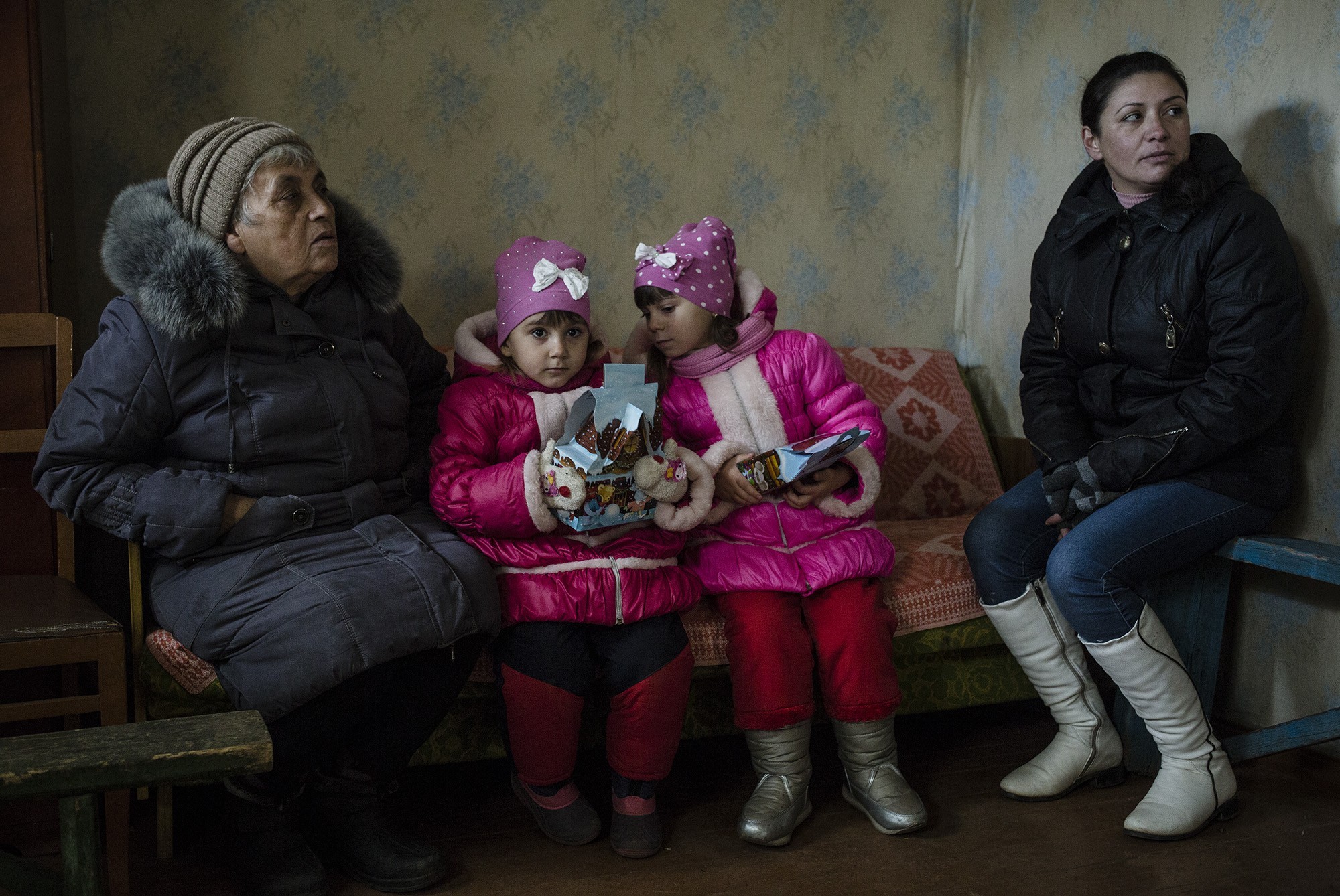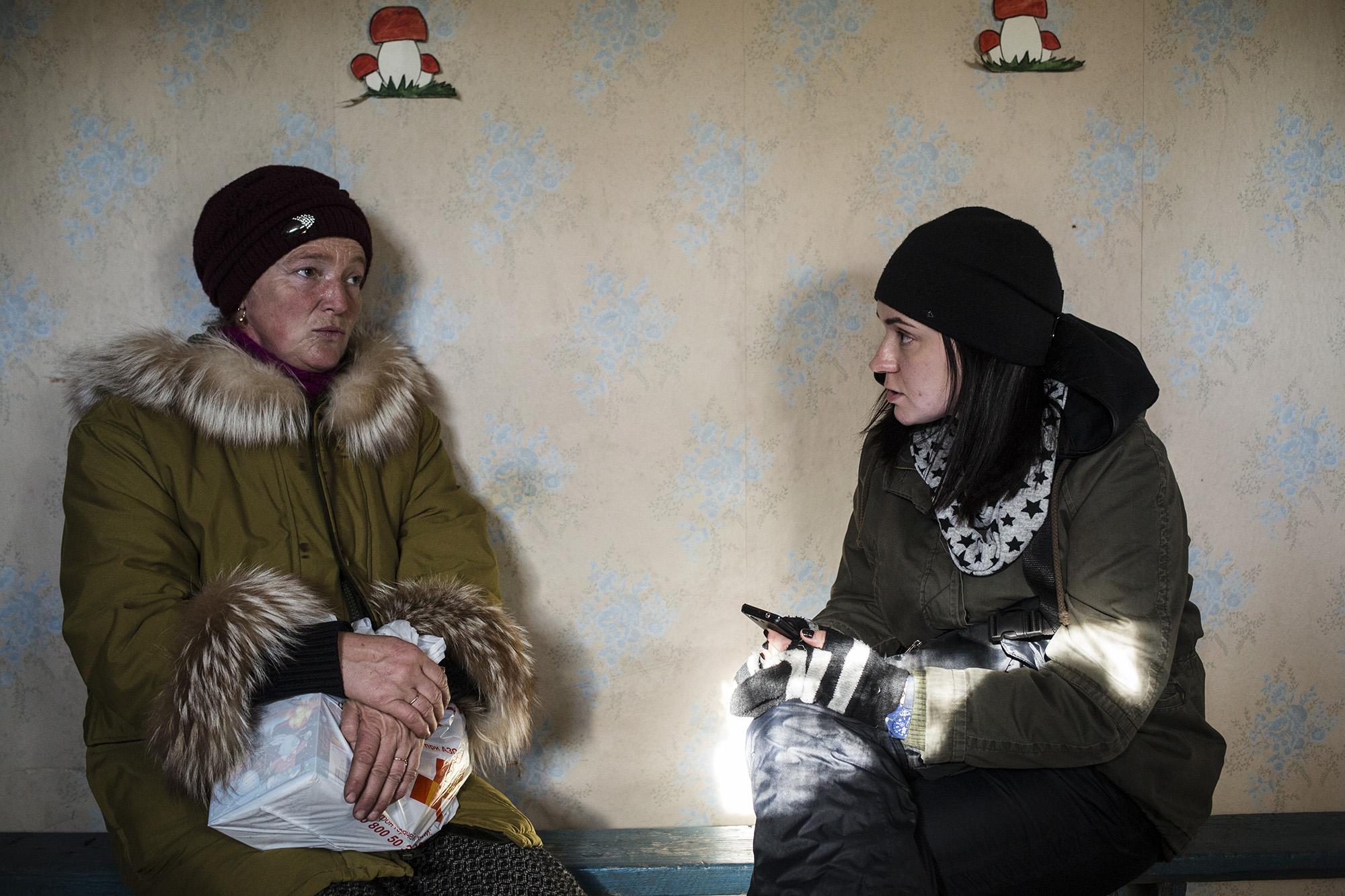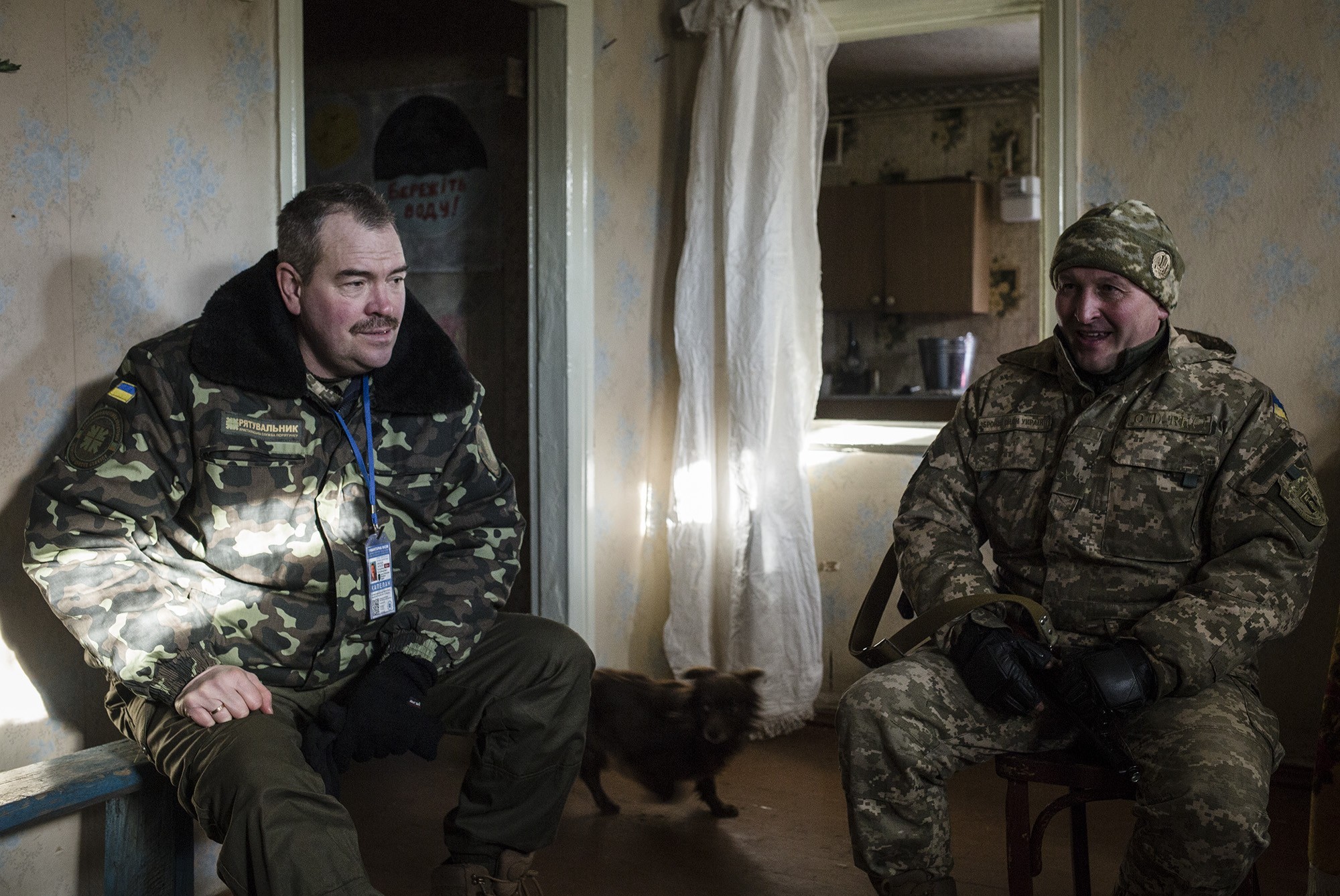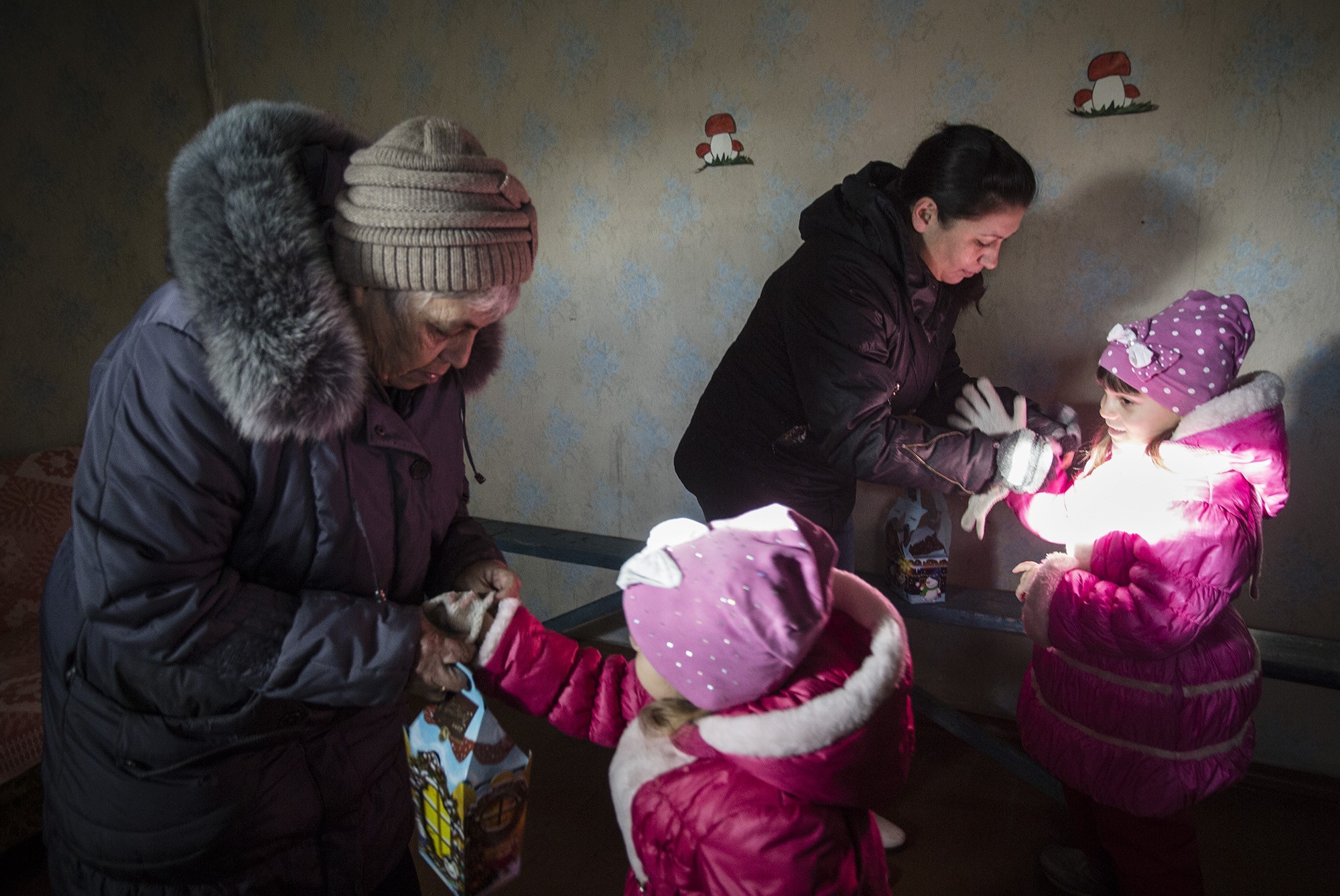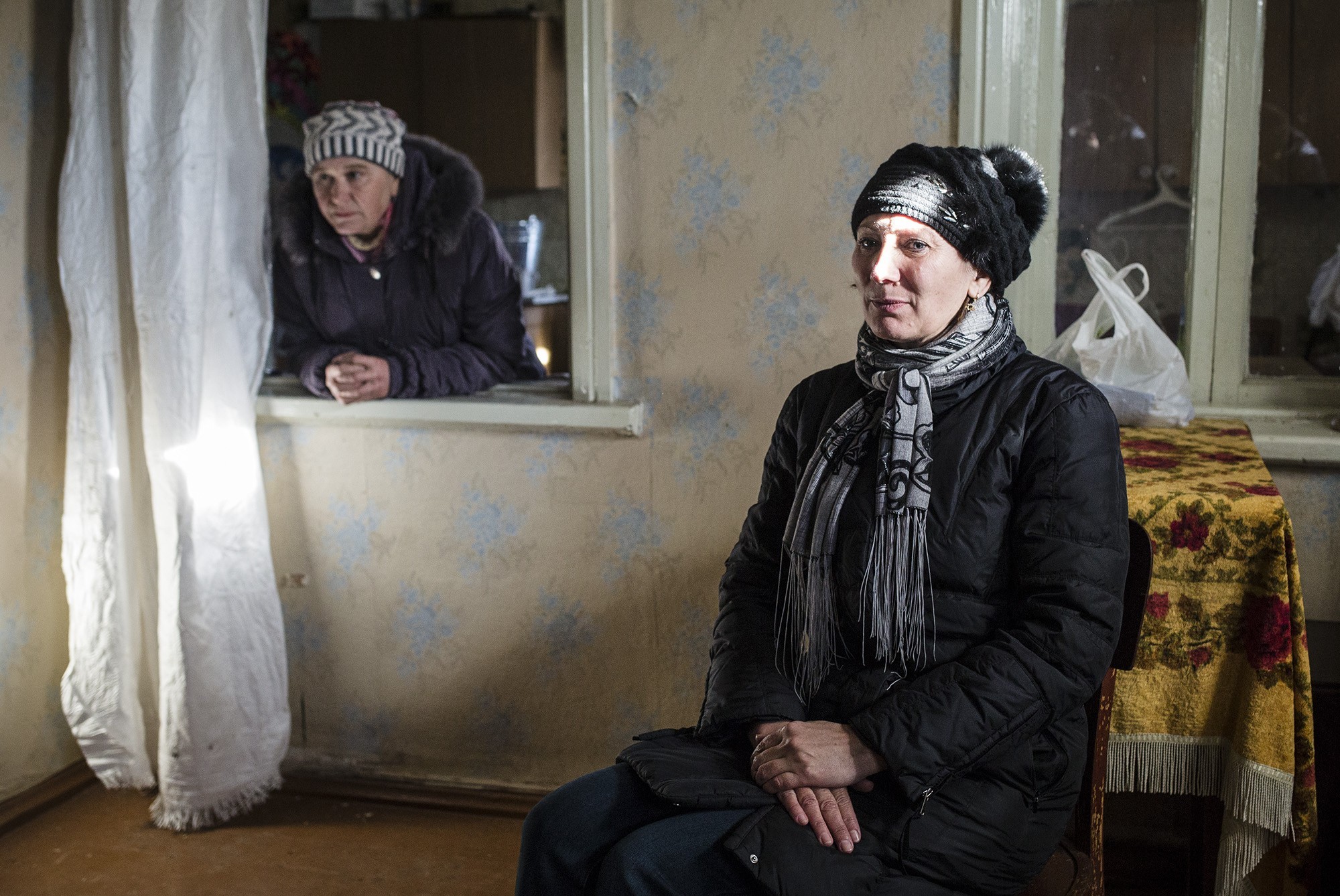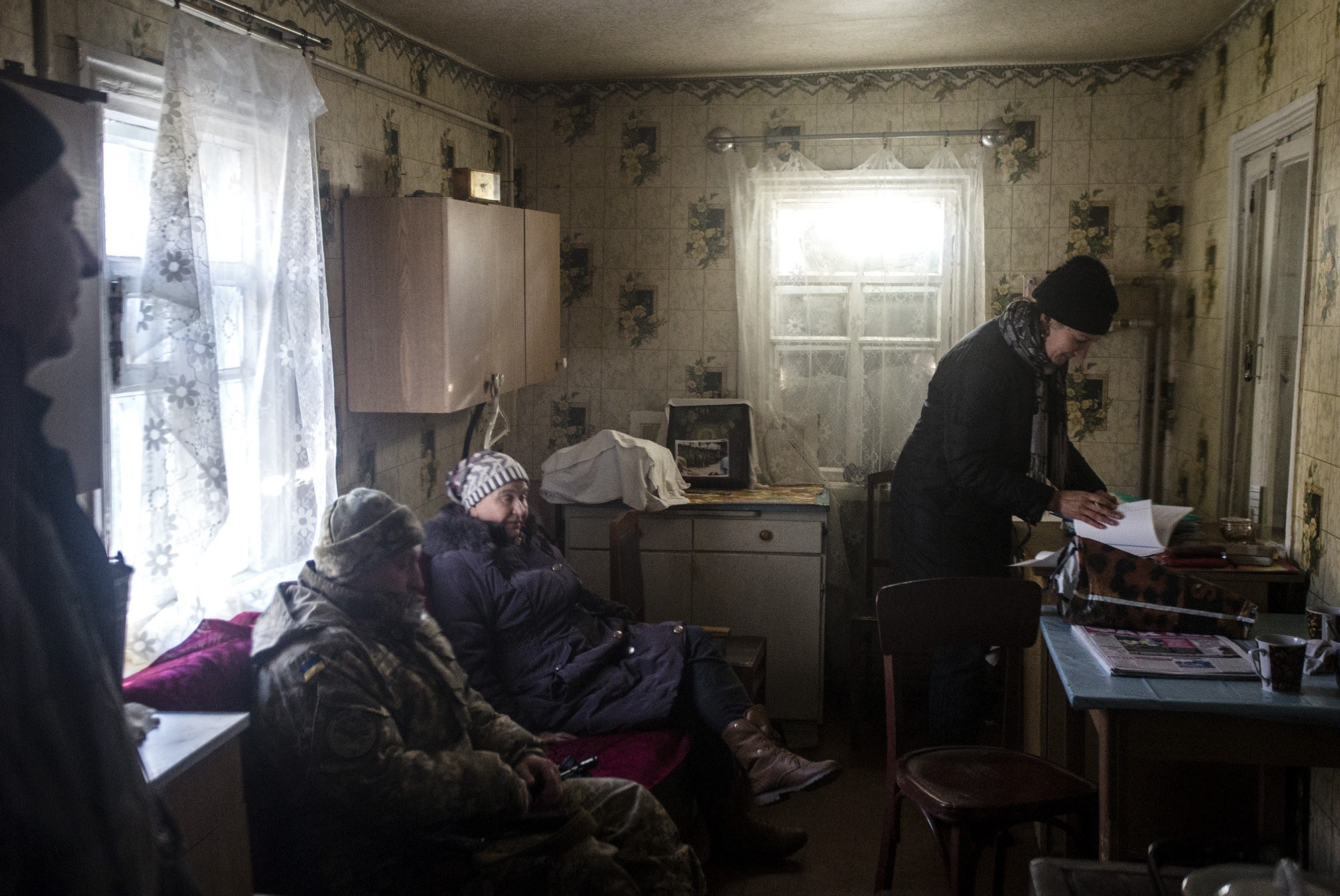ZHOVANKA, Ukraine – When the shelling starts, sisters Tamara, 5, and Alina Eminovy, 3, rush to a big stuffed toy duck lying in the corner of their room and hug it tightly.
This is how the two girls cope with fear and stress they have experienced nearly every day over the two years of the Russian-instigated war in eastern Ukraine.
Their house, located in the Ukrainian government-held village of Zhovanka on the northern outskirts of the separatist-held city of Horlivka, some 700 kilometers southeast of Kyiv, is exactly on the front line between the two warring sides. On Nov. 24 black smoke was rising from their neighbor’s house, which had just been hit by a shell.
Tamara and Alina don’t play in the yard because of the frequent shelling. Neither do they watch TV – there hasn’t been any electricity in Zhovanka for the last six months. Even using candles or torches is not recommended, as the light may attract sniper fire from the separatists’ side.
In pink winter jackets and pink woolen hats, the two girls sit between their mother and grandmother in a house of a local school teacher to meet with volunteer Olena Rozvadovska.
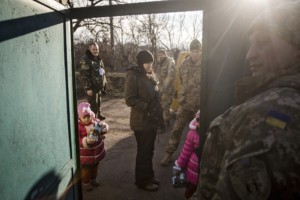
They are not cold in the unheated room – the residents of Zhovanka are used to spending nights in cold basements hiding from shelling. After talking with the girls’ mother, Rozvadovska said she is determined to bring this family away from the frontline of the war, which has already claimed more than 10,000 lives.
“A house in Sloviansk costs some $10,000. Now I have the task of collecting this money for them,” she said.
Unlike many other families living in the war zone, the Eminovy family are ready to resettle in a safer area, but can’t because they don’t have the money for a new house.
There’s no work in Zhovanka, the population of which has shrunk from 800 people before the war to 158 people now. But there are still 10 children residing in the village, four of whom have to live five days per week in a boarding school in Bakhmut, because the school bus can’t travel to Zhovanka every day.
One of these children separated from their families by the war is Zarina Eminova, 9 – Tamara and Alina’s elder sister.
Psychological wounds
According to official Ukrainian statistics, 68 children have been killed, 152 wounded, 1,937 orphaned and 236,000 displaced as a result of the war, Iryna Gerashchenko, the deputy chairperson of Ukraine’s parliament, reported at a UN Security Council meeting on Oct. 25.
But Rozvadovska, who has been working with children in the Donbas since the beginning of the war, said there are no reliable counts of child casualties. She added that after 30 months of war, the government is yet to define the status of children affected by war, even after parliament finally adopted a special law on them.
Meanwhile, thousands of children are suffering from the grave psychological wounds caused by the war.
“They have all experienced either evacuation or hiding in a basement,” she said. “I know children whose hair has gone completely gray.”
She added the hardest period for her work was January-February 2015, when she was helping evacuate residents from the city of Debaltseve to other parts of Ukraine. Some families couldn’t go but were sending their children together with volunteers to save their lives. The children were sent to a boarding school in Zaporizhzhia Oblast.
“I will forever remember the bus station in Sloviansk where the buses from Debaltseve were arriving,” Rozvadovska said.
Relocation
Rozvadovska, 32, who worked with the government’s representative for children’s rights and UNICEF before the war, decided that helping the war children from Kyiv was ineffective.
So she resettled in Sloviansk in March 2015 and started traveling to the most distant and war-affected places in the government-controlled parts of the Donbas to help children who were living there.
For the first nine months, she lived in a dormitory for internally displaced people opened by a local protestant church, and then relocated to a friend’s house.
With her back aching from carrying a heavy rucksack stuffed with toys and children’s clothes, she travels to Avdiyivka, Mariyinka, Krasnohorivka, Krymske and other places, often by public transport.
She said she’s still shocked to see how many children still live on the frontline. “They lack a feeling of safety, which is a basic feeling necessary for every child,” Rozvadovska said.
Effects of war
Many of these children lack even someone to talk to, as they can’t go anywhere from home. So she spends lots of time just talking and playing with them.
She said that in Avdiyivka an 11-year-old boy, Sashko, was shot in the leg when he was riding by bicycle to a local shop at midday this summer. He lives in the most dangerous part of the town, close to the separatist-held city of Donetsk.
In the city of Popasna, Vlada, 13, lives in a house built on the site of one destroyed by a shell in the summer of 2014. Vlada’s grandparents were killed by the shell, and the girl was lucky to have been evacuated by her aunt just a day before.
Rozvadovska helped to collect money to rebuild the house. Thanks to her previous jobs, she’s able to connect children in need with donors, no matter whether they need clothes, medication, or diapers, or the assistance of a lawyer or psychologist.
She said that parents and teachers don’t understand that children in a war zone badly need psychological assistance.
“One school principal told me he doesn’t trust the psychologists and considers them to be charlatans. And there’s a boy studying in his school whose friend was killed before his eyes after stepping on a mine!” she said.
“Children who have seen the war have impaired memory and concentration. Of course, this will affect their school studies,” she added.
Losing heart
A survey conducted by UNICEF and the Save the Children foundation this October in schools in the government-controlled parts of the Donbas revealed that 68 percent of schools admitted that the war affected the quality of studies and the psycho-emotional state of their children. In addition, 60 percent of schools admitted that the war has badly affected their teachers’ work.
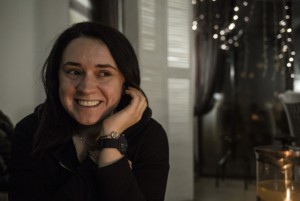
Rozvadovska said she hopes to launch special psychological training sessions for teachers in Avdiyivka, Mariyinka, Krasnohorivka and Toretsk from February next year. She has already obtained preliminary agreement on this from local officials and foreign donors.
A special center for psychological consultations for families with children will also be opened in Sloviansk in January.
Rozvadovska said she herself has also been receiving psychological help for six months – this is common for volunteers who are helping victims of the lingering Donbas war. Most of the volunteers who started working in 2014 have had to stop due to exhaustion – psychological, as well as physical.
“The volunteers are losing heart,” Rozvadovska said. “It’s easier for me, as I spend time with children, who always give me a lot of energy.”
